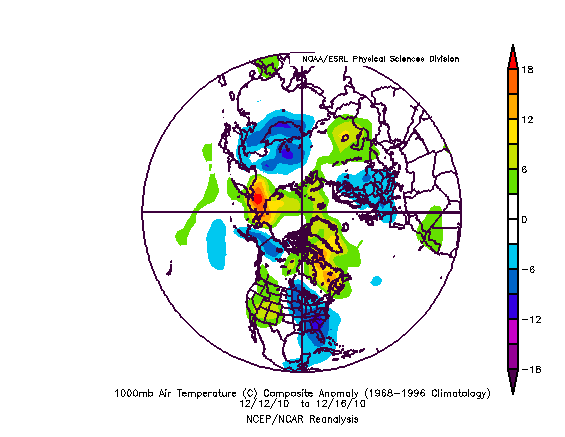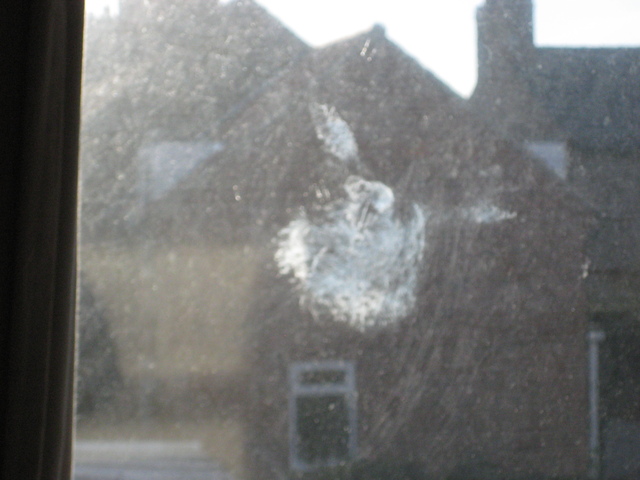Blogs
Nature's admonitions
Wed, 19/01/2011 - 09:27 — danVia Paul Krugman via Joe Romm, here's the Economist from 1848:
Suffering and evil are nature’s admonitions—they cannot be got rid of; and the impatient attempts of benevolence to banish them from the world by legislation, before benevolence has learned their object and their end, have always been more productive of evil than good.
What are they complaining about? In the years before the Great Stink of 1858, the Economist was protesting about government attempts to pass housing and sanitation laws; to quote from that wikipedia article:
Part of the problem was due to the introduction of flush toilets, replacing the chamber-pots that most Londoners had used. These dramatically increased the volume of water and waste that was now poured into existing cesspits. These often overflowed into street drains designed originally to cope with rainwater, but now also used to carry outfalls from factories, slaughterhouses and other activities.
Nice. Add to that, no-one knew exactly what caused cholera. Romm got started on this responding to an argument against regulating co2: "it is almost the height of insanity of bureaucracy to have the EPA regulating something that is emitted by all living things."
Romm: what, like with sewage? Krugman: actually, it turns out, yes if the same thinkers had had their way in the nineteenth century. Which reminds me again what an amazing time for ideas nineteenth century Britain was. The nightwatchman state; great quote from Sir Charles Wood, chancellor of the exchequer around the time of the 1845 Irish famine: "the more I see of government interference, the less I am disposed to trust it, and I have no faith in anything but private capital employed under the individual charge."
Great froth of ideas; not so great smell. Anyway, this is about as perfect an example as I could hope for to illustrate an indispensable lesson about Burkean anti-meddling arguments: don't get tangled up in them too much. Life is too short and there's too much sewage in the world.
Snow joke
Mon, 20/12/2010 - 18:53 — dan
I can't quite bring myself to seek out anyone claiming the cold proves climate change isn't happening - as if foreign weather doesn't count somehow. But I thought it worth ending the year with a quick note on two of 2010's most striking climatic occurances. The common theme emerging this year: if a complex system is changing, how do you measure when specific events mean anything? Ultimately, the answer is: for any one 'event', you can't, but you can say pretty definitively that climate change = climate disruption, and the definition of 'extreme' will shift as the variance changes.
First-off were two stories that were actually one, connected story from the summer: Russian drought and Pakistani floods. Initforthegold is as good a place as any to start with that, including a good discussion of the difference between loading the dice and changing them for ones with higher numbers. The weather underground has some good graphics showing the jetstream changes tying the two together. Russia lost a quarter of its grain crop. In Pakistan, two and a half million people were affected.
As far us freezing our asses off - it was just listening to the news, and the impact the cold is having all across Europe that prompted me to write. There's one perfect graphic for this, via Peter Sinclair's blog. The NOAA has a pretty nifty live output showing the temperature anomaly over the Northern hemisphere. Compare also to this at init: most of the total anomaly is away from the equators, towards the poles. The NOAA anomaly graph shows some spots far North that are 15 degrees celsius warmer than the 68-96 average. Spending a few moments contemplating the breadth of the difference in both directions, and having a little think about how low and high pressure work, should be enough to get across that climate change was never going to mean an even increase.
There's no real need to make any specific claims about this being 'caused by' co2-induced climate change. The important question is: can we expect this sort of disruption to increase in the future? It's not rocket science, of course: if you push a complex dynamic system with any kind of forcing, it will attempt to get back to an equilibrium. In the meantime, you get disruption - and in chaotic systems, they'll manifest themselves in all sorts of exciting ways. We already have plenty of relatively well-understand oscillations, even if their timings - like the NAO - are never predictable. It would be one thing if we could expect to get this sort of winter regularly - that's something you can prepare for. But we actually have to prepare, as much as possible, for any eventuality, since there's no exact way of knowing how the system will eventually settle.
And that's presuming, of course, we decide it might not be a good idea to carry on pushing it. The more we do, the more the regional uncertainties increase (as well as uncertainties relating to feedbacks). That's an irony that MT over at initforthegold often points out: anyone claiming that uncertainty should mean inaction hasn't understood what's happening. Or they have, and they know that doubt, however slight, is a massively appealling get-out clause that many of us would dearly love to grab with both hands.
Attacked by a limits to growth metaphor
Fri, 17/12/2010 - 12:28 — dan
Yesterday I was avoiding work in my usual way, commenting on climate blogs. (I'm about to physically remove the cable from the back of my machine - putting the internet ever so slightly further out of my reach than 'alt+tab'.)
Anyway, I was commenting on some limits to growth-related stuff (e.g. note this great oil drum article on the 'demonising of the limits to growth', especially the currently all-too-familiar phrases, 'ecoscam', 'quote' and 'out of context'). Just as I was sitting there pondering the whole issue, there was an almighty bang - scared the living bejeesus out of me. The picture included here tells the story: some poor pigeon, happily flying along, didn't know about glass. The window now has an almost perfect pigeon-print on it, even with wings at 11 and 3 o clock.
That poor pigeon nicely helped me appreciate what a very sudden, invisible termination of business-as-usual might feel like. The pigeon itself was nowhere in sight, so perhaps it flew off relatively unscratched, though it may just be dead in a neighbour's back garden.
Moral: you might not be adapted to see some of the barriers that the world may present you with. It doesn't mean they're not there.
Quotes instead of content
Thu, 16/12/2010 - 11:58 — danPhD: at the stage where I can't write about anything in case it turns out to be nonsense, but also can't write about anything else because the PhD will see, and will punish me. In the meantime... A little while back I stuck in a little random quotes panel on the blog. There's a few fun bits of bite-size reading there, and here's the link to the full list.
Oh, while I'm here, just a thought on this week's similarity between David Cameron and Chris Martin from Coldplay. First, Cameron, responding to a question on the proposed NHS 'reforms', which are looking a lot like the biggest restructure since its foundation. Putting aside whether this is a good idea or not, the use of language is a wonder to behold. Miliband:
The coalition agreement says, 'we will stop top-down re-organisations of the NHS that have got in the way of patient care...'
Cameron:
We are not re-organising the bureaucracy of the NHS, we're cutting and abolishing the bureaucracy of the NHS.
Right. The moral here: never ask Cameron to renovate your house. Chris Martin has a different take on massive self-delusion. Apparently, Coldplay just happen to have written a song, he says, called 'Christmas Lights'. That's just where the flow of creative juices just happened to take them. Later, he then went on to point out that Coldplay cared not about their position in the run up to the Christmas No.1, as that would "cheapen" the song, which - and this is a direct quote - "just happens to have Christmas in its title."
Uh huh. Odd that it got released just before Christmas, one might think. Charitably, one might imagine Coldplay are executing a high-larious, self-knowing prank - but if that's the case, why would they choose a prank that 'just happened' to make them out to be utter twats?
Oh oh, PhD has seen me...
The doughnut of empirical correctness
Fri, 01/10/2010 - 03:28 — dan
Something for the shelf of philosophical objects...
The doughnut of empirical correctness in a theory constitutes its worth, while its hole of untruth constitutes its weakness. I regard it as a monstrous perversion of science to claim that a theory is all the better for its shortcomings; and I notice that in the luckier exact sciences, no-one dreams of making such a claim.
(Paul Samuelson in Blaug, 'The Methodology of Economics', p.97.)
Blaug does a good job of parrying that:
It is as though generations of physicists had ridiculed Newton's theory of gravity on the grounds that he committed himself to the patently unrealistic assumption that the masses of moving bodies are concentrated at their centre... Faced with the accusation that no theory with counterfactual assumptions can be taken seriously, the thesis of the irrelevance of assumptions is almost excusable. (p.104)
But mainly: new philosophical object! Almost two for the price of one, but a "hole of untruth" isn't an object, sadly.
If there is any kind of supreme being
Wed, 18/08/2010 - 12:35 — dan"One day when I was a young boy on holiday in Uberwald I was walking along the bank of a stream when I saw a mother otter with her cubs. A very endearing sight, I'm sure you will agree, and even as I watched, the mother otter dived into the water and came up with a plump salmon, which she subdued and dragged on to a half-submerged log. As she ate it, while of course it was still alive, the body split and I remember to this day the sweet pinkness of its roes as they spilled out, much to the delight of the baby otters who scrambled over themselves to feed on the delicacy. One of nature's wonders, gentlemen: mother and children dining upon mother and children. And that's when I first learned about evil. It is built into the very nature of the universe. Every world spins in pain. If there is any kind of supreme being, I told myself, it is up to all of us to become his moral superior."
Lord Vetinari, Patrician of Ankh-Morpork, in Pratchett's Unseen Academicals
Beyond the walled garden of twitface
Thu, 29/07/2010 - 04:56 — danHaving just committed social e-suicide and left twitface for a time, the first thought that struck me was, "wow - facebook/twitter really have a monopoly, don't they? That's quite scary. Social interaction, surely, should be built into the fabric of the internet!"
Turns out, of course, it's not just me thinking that. On the very same jolly day, here's a slashdot story on just that - attempts to make open standards for web-based social interaction. Damn straight.
Steve Schneider 1945-2010
Tue, 20/07/2010 - 06:51 — danWe're insulting our global environment at a faster rate than we're understanding it. And the best we can do, in all honesty, is say: look out, there's a chance of potentially irreversible change at the global scale, based on the benefits of the use of energy. And it's very tough for us to know whether those benefits of energy today are worth the potential risks of environmental change for our children.
Blood, sweat and containerisation
Wed, 19/05/2010 - 10:08 — danThe last episode of blood, sweat and luxuries aired on BBC3 last night. In this series, a bunch of UK consumers have been made to work on products that end up on British shelves. They stay with other workers for the duration. I've only caught two of them, but it was powerful stuff, if occasionally cringeworthy watching some of the Brits deal with it. A 'part time male model' in particular seemed to wear his outrage in front of the camera as an accessory, and mostly flounced off the jobs after an hour or so.
Last night's saw them working in a relatively small Phillipino components factory in Manila - called EMS - making small changes to a hard-drive wire for mp3 players in a cleanroom, looking out through a tiny slit in their blemish-free gowns. The factory is in Laguna, the 'Silicon Valley of the Philippines.' (Google found that in a copy of the Philippine Daily Inquirer from 2000. How did it do that??)
To begin with, they clown about; when the supervisor points out the workers are trained not to look up from their work regardless of what they hear, a couple of them take to banging on the windows - and indeed, no worker moves from their task. "Every unit takes 3 seconds, a single glance takes 3 seconds," points out the supervisor, "so you will fail to meet your output."
Meat and symbols
Sat, 27/03/2010 - 10:20 — danOften, in the moments between sleeping and waking, ideas become visceral, almost literally. This can include things like 'oh my God, Sarah Palin might be one heartbeat away from leader of the free world' or 'oh my Christ, we really are managing the fuck the one planet we have.' That last one is often accompanied by the 93 million miles between the Earth and sun shrinking so that the heavenly bodies are almost within mental grasp, almost in the same room. There really is a star blasting at us, churning our water and atmosphere.
More recently, there's been a few occasions when it's been more corporeal: yanked back from sleep and plopped into a vast dark room of consciousness, so I can have some stark fact about my physical form klaxoned at me. For some reason, my spine got that treatment (probably because of a bad back); a keen sense of bone and gristle holding my centre line together. More recently (probably after some film or other) my brain decided to get all 'aaargh' at the idea of a bullet going through it. Quite reasonable thing for it to do, one might think. The fact that usually it doesn't says something about our ability to just get on with what the world presents us with. But right then, my brain wasn't having any of it: so, here's a bullet, right? It goes through and me, this person - suddenly I'm goo, I'm all over the place.

Recent comments
21 weeks 6 days ago
2 years 12 weeks ago
2 years 12 weeks ago
2 years 14 weeks ago
2 years 15 weeks ago
2 years 15 weeks ago
3 years 12 weeks ago
3 years 36 weeks ago
3 years 36 weeks ago
3 years 38 weeks ago